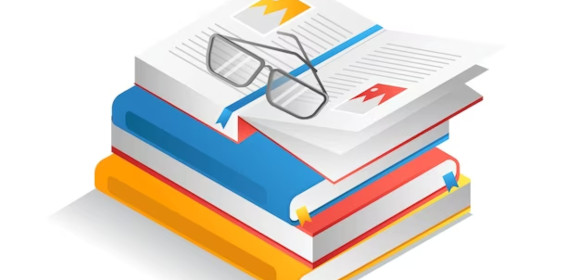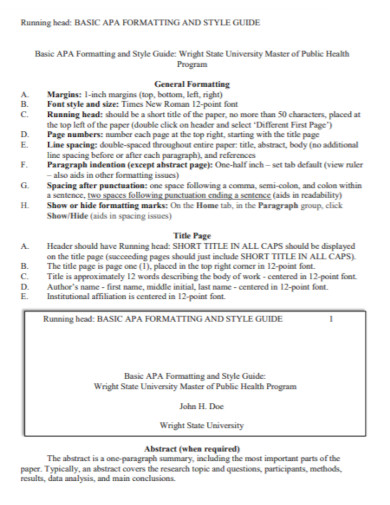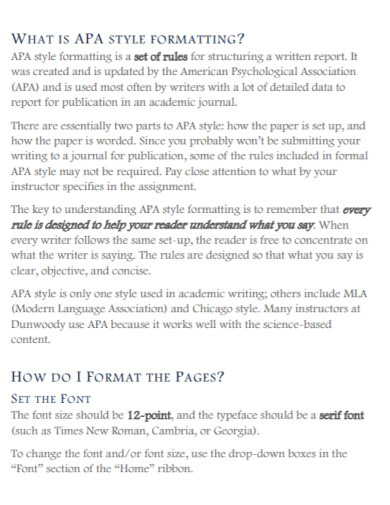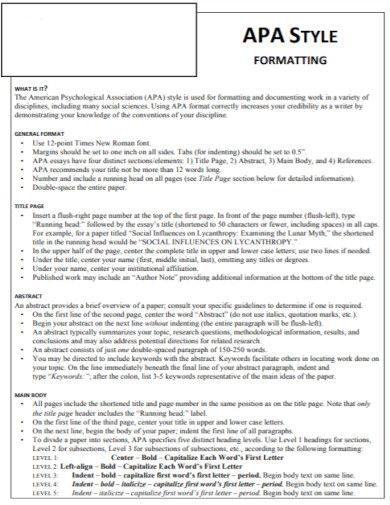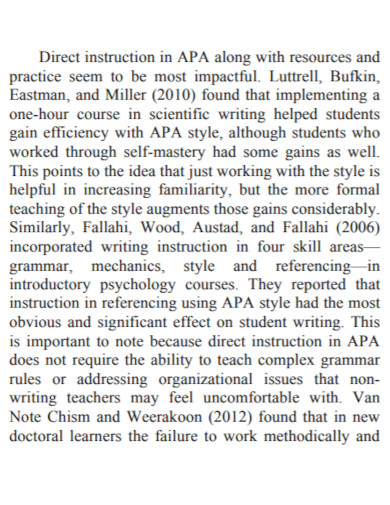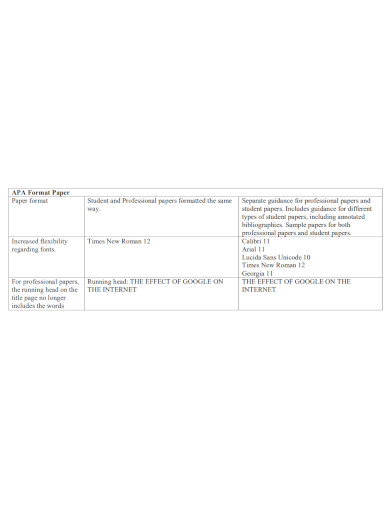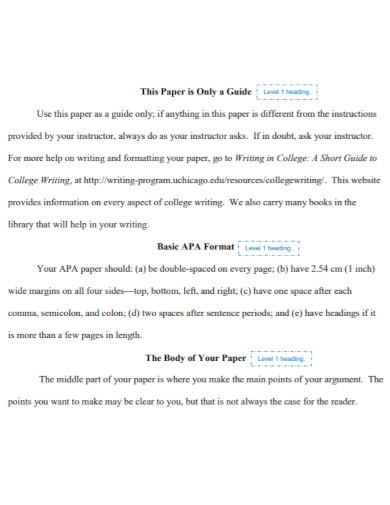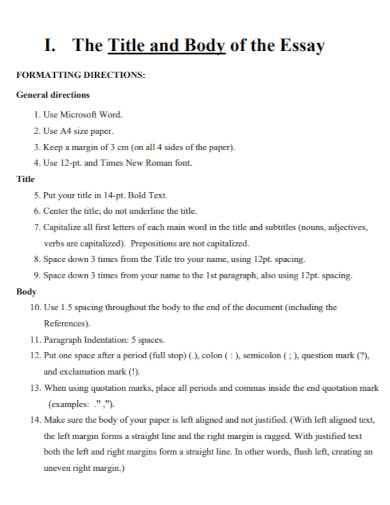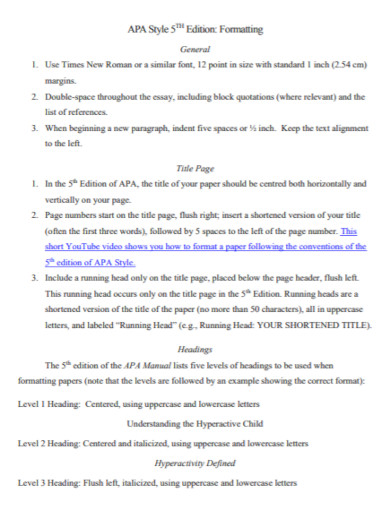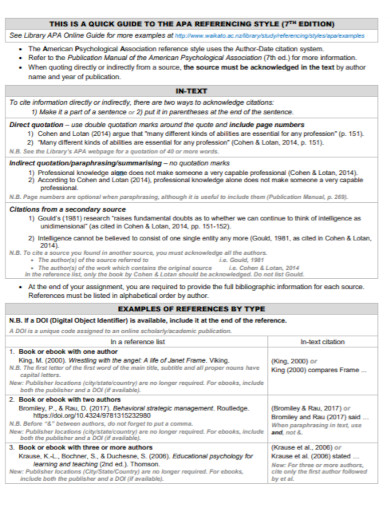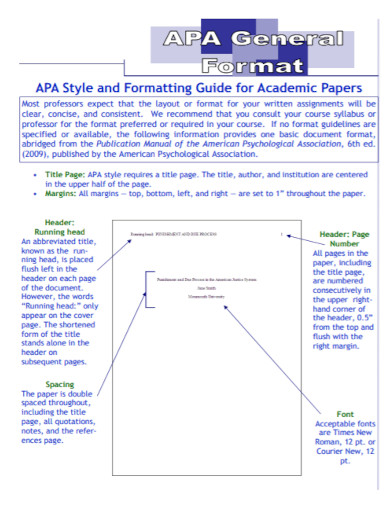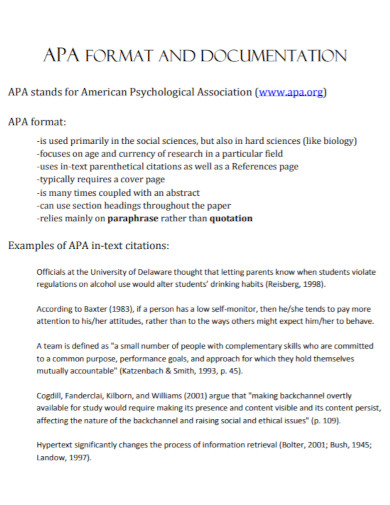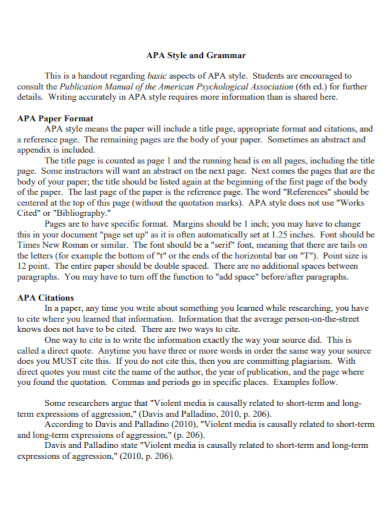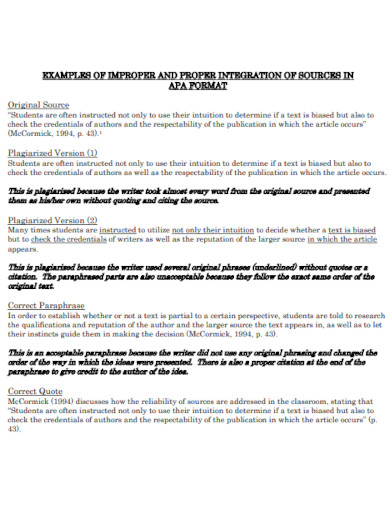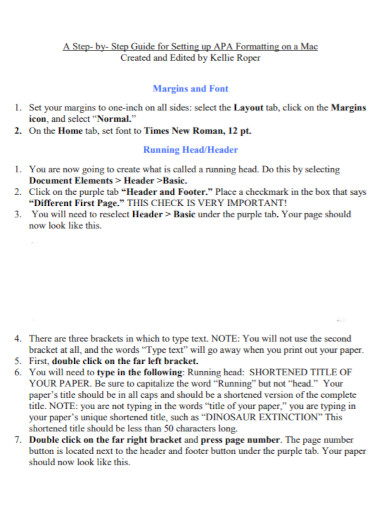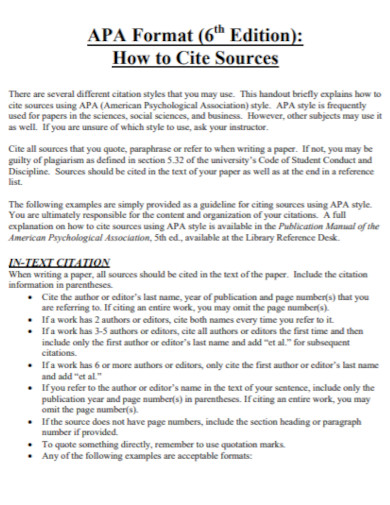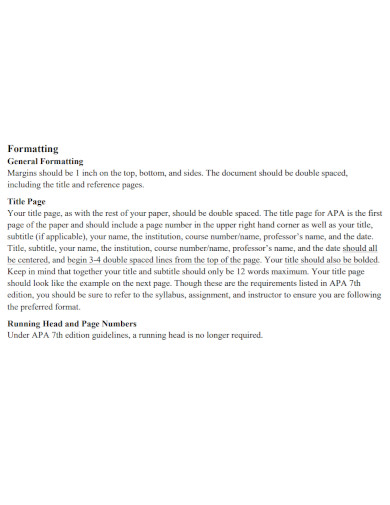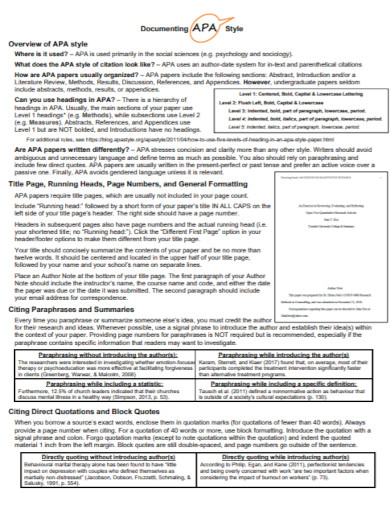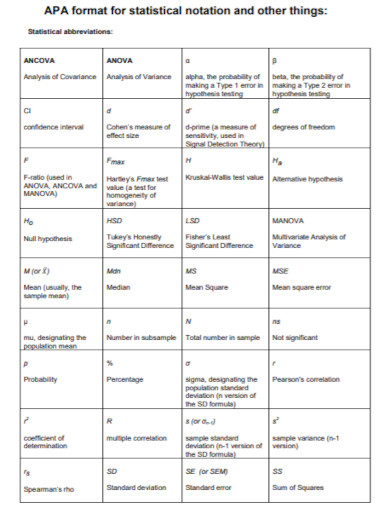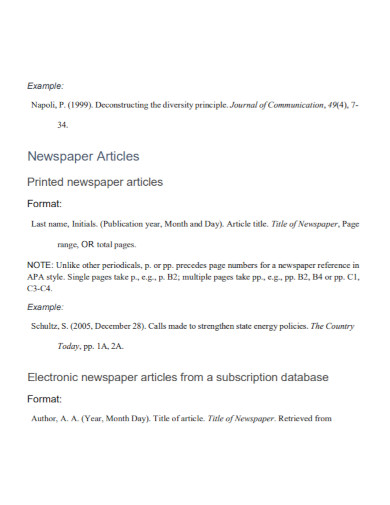APA Book
In the realm of academic writing, adhering to specific formatting guidelines is crucial for clarity, consistency, and credibility. If you’re tasked with writing a book in APA format, fear not. This article serves as your compass, providing clear instructions, examples, and insights into the intricacies of APA style, ensuring your book stands as a shining testament to scholarly excellence.
1. APA Format Template
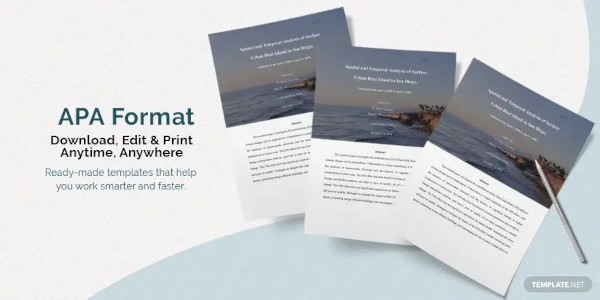
2. Sample APA Format Template
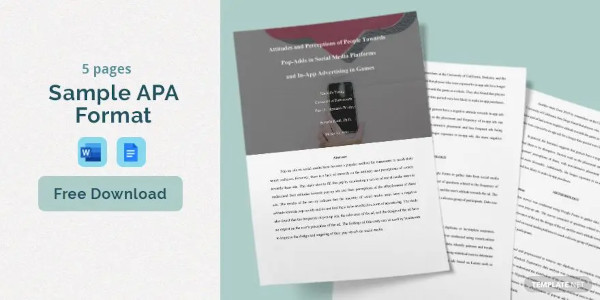
3. Research Paper APA Format Essay Template
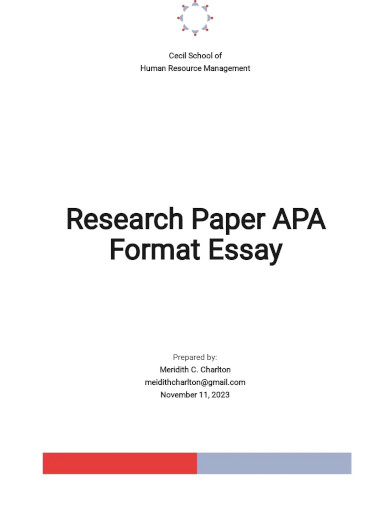
4. APA Report Format Template
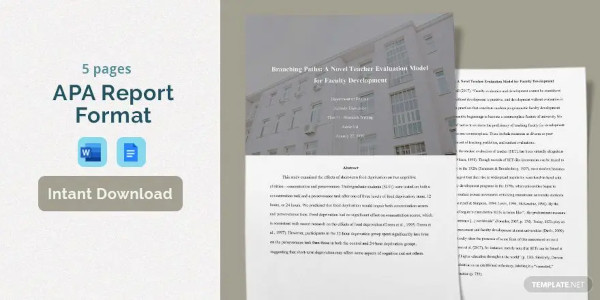
5. APA Journal Format Template
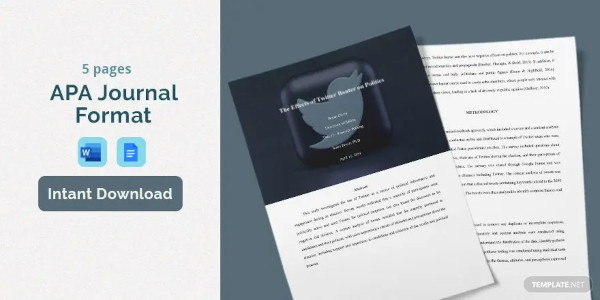
6. University APA Formatting
7. APA Style Formatting Template
8. Standard APA Format in PDF
9. Students APA Format
10. Integrating Source Material in APA Format
11. Basic APA Format Example in PDF
12. APA Format Directions
13. Sample APA Formatting in PDF
14. APA Referencing Format
15. APA Format for Academic Papers
16. APA Format and Documentation
17. APA Format and Grammar
18. Examples of APA Format in PDF
19. APA Format Steps
20. State University APA Format
21. APA Format in Title Page
22. Documenting APA Style Format
23. APA Format for Statistical Notation
24. APA Format Paper Example
25. APA Format Handout
What is an APA Format Book?
An APA format book adheres to the guidelines set forth by the American Psychological Association (APA) for academic writing. This format encompasses various elements, including APA headings, abstract, in-text citations, and a well-structured paper. By following these guidelines, your book will maintain a professional and organized appearance, enabling readers to navigate your work with ease.
How to Write a Book in APA Format
Writing a book in APA format requires a meticulous approach to ensure your work meets the standards of the American Psychological Association (APA). By following this step-by-step guide, you’ll gain a clear understanding of the necessary elements and formatting guidelines necessary to produce a polished and scholarly APA format book.
Step 1: Format with APA Headings
Begin by organizing your book with appropriate APA headings. These headings provide a hierarchical structure that guides readers through the content. Use bold formatting for main headings (APA Level 1), italics for subheadings (APA Level 2), and bold italics for subheadings within subheadings (APA Level 3).
Step 2: Craft an Engaging Introduction
Start your book with an introduction that captivates readers and sets the stage for your work. Clearly state the purpose of the book and provide an overview of the topics or arguments you will address. Use concise and clear language to engage your readers from the start.
Step 3: Include an Abstract
An abstract is a brief summary of your book that highlights the main points, purpose, methodology, and findings. It should be a standalone paragraph of 150 to 250 words, providing a concise overview of your work. Ensure your abstract accurately represents the content of your book and piques the reader’s interest.
Step 4: Incorporate In-Text Citations
Throughout your book, include in-text citations to acknowledge and reference the sources you have consulted. When citing within the text, include the author’s last name and the year of publication within parentheses. If directly quoting, include the page number as well. Ensure your in-text citations are accurate and follow the APA format guidelines.
Step 5: Maintain a Well-Structured Text
To maintain coherence and readability, structure your book’s content logically. Use clear topic sentences and transitions to guide readers through your ideas smoothly. Each paragraph should focus on a single main point, and sections should flow logically from one to another. This will help readers understand and follow your arguments effectively.
Step 6: Provide a Strong Conclusion
Conclude your book with a compelling final chapter that summarizes your main arguments, findings, and insights. Emphasize the significance and implications of your work in the conclusion, leaving readers with a lasting impression. Reflect on the broader implications of your research and provide suggestions for future research or applications.
FAQs
What is the purpose of APA headings in a book?
APA headings provide a clear organizational structure to your book, allowing readers to navigate and understand its contents easily. They promote a logical flow of ideas and help maintain consistency throughout your work, enhancing readability and comprehension.
Do I need to include an abstract in my APA format book?
Yes, an abstract is an essential component of an APA format book. It provides a concise summary of your work, including the purpose, methodology, results, and conclusion. The abstract serves as a quick overview, allowing readers to determine the relevance and significance of your book.
How do I incorporate in-text citations in my APA format book?
In-text citations are crucial in APA format books to acknowledge and give credit to the sources you have consulted. Include the author’s last name and the year of publication within parentheses after any information you have borrowed or paraphrased from a source. This enables readers to locate the full reference in your reference list.
What role does text structure play in an APA format book?
Text structure refers to the organization and coherence of your book’s content. In an APA format book, it is essential to use clear headings, subheadings, and transitions to guide readers through your ideas. A well-structured book enhances readability and ensures that your arguments are presented in a logical and cohesive manner.
Writing a book in APA format requires attention to detail, adherence to formatting guidelines, and effective communication of your ideas. By following this step-by-step guide, you can ensure your book meets the standards set by the APA. So, embrace the structure of APA headings, engage readers with an informative introduction, incorporate accurate in-text citations, and create a well-structured and impactful book. With dedication and precision, you can confidently produce an APA format book that showcases your scholarly prowess and contributes to your field of study.


